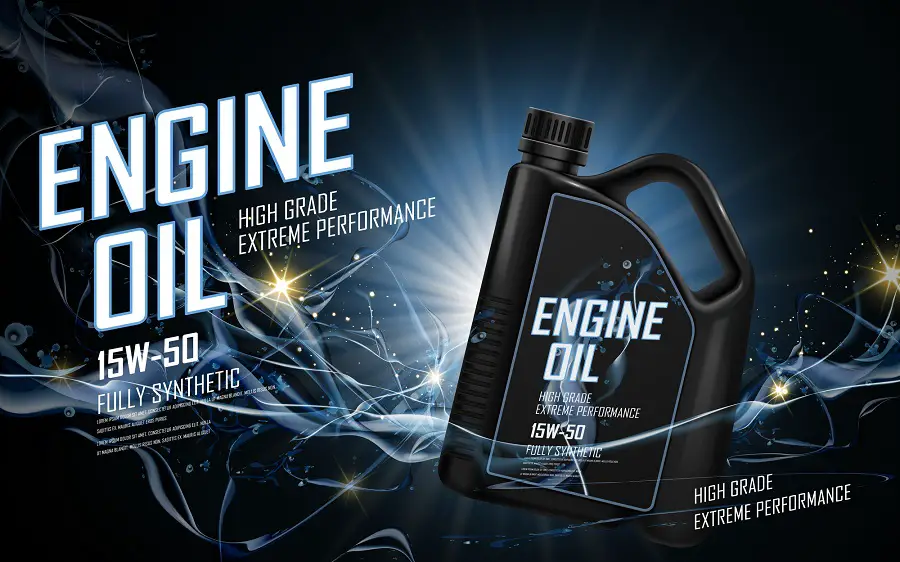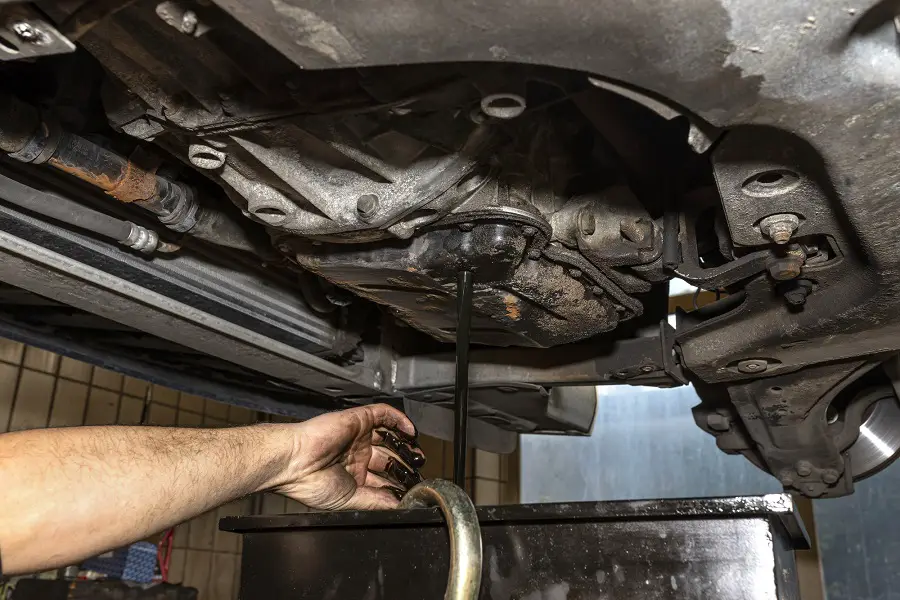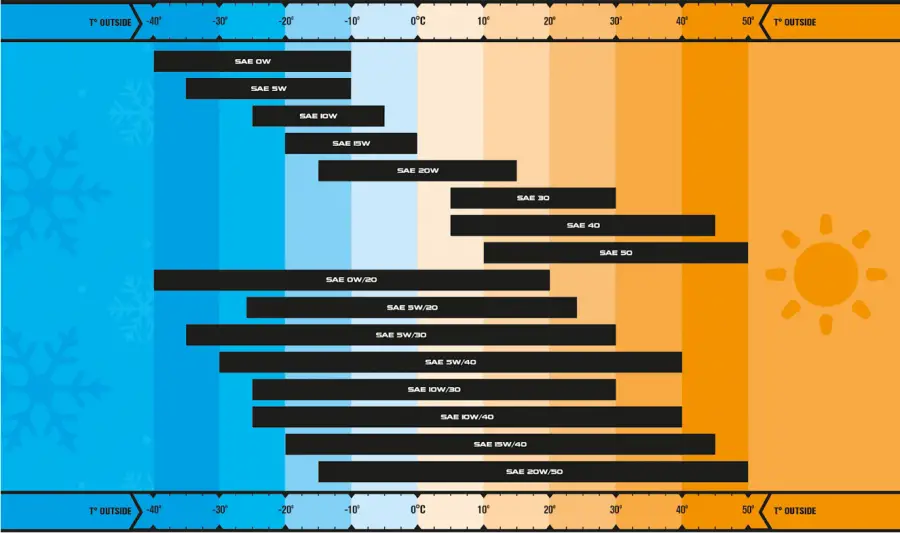Motor oil is a lubricant. Its job in your car’s engine is to keep the parts working properly and filter out dust and other debris that can cause engine damage. So if your vehicle is not performing as it should, it’s probably burning oil, and you have a potential problem that can lead to catastrophic engine failure.
If you’re driving a new car, you may not know your car is burning oil fast because the catalytic converter masks the symptoms. However, telltale signs will alert you if you drive an older car.
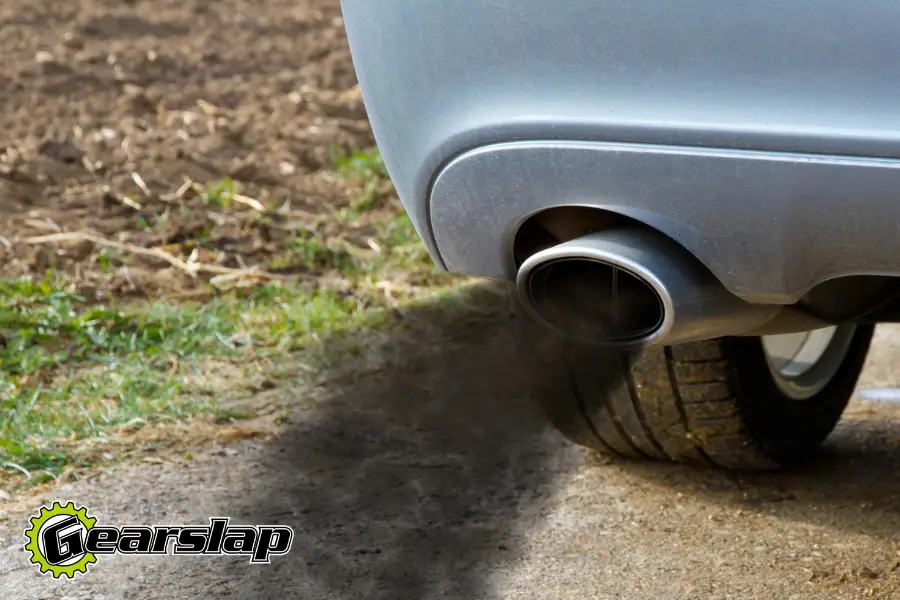
What Does “Burning Oil” Mean?
“Burning oil” means that car oil is leaking into the combustion chamber or other hot components of the engine and burning. This could be caused by degraded valve seals, piston rings or warped cylinder heads (to name a few culprits).
Overall, it’s a bad sign when your car has increased oil consumption – so let’s discuss how to diagnose it and some ways to fix it.
How Is Burning Oil Diagnosed?
Especially in an older car, there are ways to know if your vehicle is burning oil.
Engine Oil Light Comes On
The best way to tell if your car is burning oil is when the check oil light comes on. You mustn’t ignore this light. This light is a warning that your oil might be a little low, which is one indication that it is burning too quickly and that there might be a problem.
Low Oil
If your car leaks oil, you will see oil stains on the ground where you park. However, if the oil is burning too rapidly in the engine from another cause, you won’t see leaks, but you will see a rapid decrease in oil levels. If you have to add oil frequently, you potentially have a problem with your car engine burning oil.
Misfiring
If your engine misfires, it is probably from your engine burning oil fast. When the oil is low, your engine overheats and causes misfiring.
Bad Spark Plugs
Oil on your spark plugs means the oil is burning in the engine. This burning puts oil in the spark plugs, which damages them. So if you have to replace the spark plugs and you notice they’re damaged, it could be from oil.
Blue Smoke
When you start your car, you’re burning oil if you notice blue smoke from your tailpipe.
Burning Oil Smell
When oil leaks from the engine and falls on engine parts, the oil burns and produces this burning oil smell, this is another clear indication that your engine is not keeping the oil in it as it should.

Reasons Why a Car Burns Oil (Internal Vs. External Oil Burn)
Now that we’ve gone over some of the signs of burning oil, let’s discuss why your car is burning oil fast in the first place. There are two reasons why your vehicle would be burning oil.
Internal Burning
The combustion chamber in any car combines air and fuel, which is ignited by the spark plugs, allowing your vehicle to start. Within your engine, many parts keep the oil out of the combustion engine, like valves, seals, rings, gaskets, etc. However, if any of these parts are faulty through age or lack of maintenance, the oil can leak into the combustion chamber. There, combined with the air and fuel, the oil burns.
External Burning
This burning occurs when oil somehow leaks out of the engine and lands on hot engine parts. The oil then sits there and burns externally.
What Can Cause Internal or External Oil Burning?
A few things can cause the oil to burn internally or externally.
Blown Head Gasket
The head gasket keeps the oil from getting in or out of the cylinders. However, an overheated engine, from a coolant shortage or bad water pumps and radiators can cause the head gasket to go bad.
When the head gasket blows, oil gets into the cylinders.
Damaged Oil Pan
The oil pan is on the bottom of your car and helps keep the oil in its place. Excessive driving over rough or rocky ground can cause damage to the oil pan, which can cause it to leak. Leaking oil can lead to the engine not working as it should because it’s not being appropriately lubricated. Seeing oil on the ground where you’ve parked is a possible sign of a damaged oil pan and should be looked into.
Worn Piston Rings
Also known as the oil control ring, This part helps keep the engine parts lubricated, but if it is worn, it cannot do its job correctly. So if it is stuck, broken, or worn, it allows the oil to leak into the combustion chamber.
This piston ring failure is what leads to blue smoke or engine misfiring. It can also cause your oil level to drop with no external leaks. Oil can also get into the air filter this way, something else to keep an eye on since that filter will have to be changed if there’s oil in it.
Bad PCV Valve
PCV stands for positive crankcase ventilation – this valve helps equalize vacuum, or pressure, in engine to increase the pressure in the crankcase (hence the “p” in PCV). If the PCV valve is bad, engine pressure cannot leave the engine. The pressure builds until it returns to the engine, blows up seals, and pushes oil into the cylinders.
Valve Guide And Seal Leaks
Intake and exhaust valves help keep your car running smoothly. Fuel-air comes in through intake valves; burned mixture leaves through exhaust valves. They must be constantly lubricated to work correctly. If damaged, oil gets into the combustion chamber. This can be another cause of the blue smoke.
Wrong Oil
Some engines produce more heat than others, so if you use an oil that cannot withstand the high heat, it can burn faster than the appropriate oil.
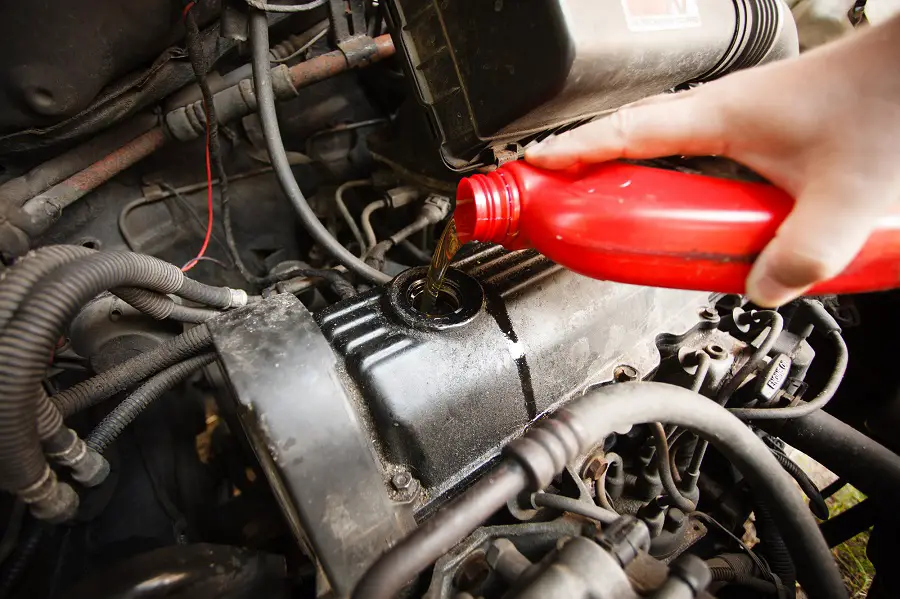
Is It Bad To Drive a Car That Burns Oil?
It can be bad to drive a car that’s burning oil fast because it can cause serious damage to the engine, which will be costly to repair. A car that is burning oil is also a fire hazard.
How Do You Fix a Car That Burns Oil (Can It Be Fixed)?
There are ways you can stay prepared and proactive when it comes to your engine, especially if you own an older car. Keeping an eye on your engine is the most important thing you can do and will be worth the extra effort in the long run.
- Stop driving and check your oil level
- Check oil level frequently
- Check your exhaust
- Check your engine parts frequently
You may not be willing to spend the money it can take to keep your car running smoothly, making the option of selling your vehicle a viable one. However, only you can decide if the money and time spent on constant car repairs are worth it.
Does Thicker or Synthetic Oil Stop Oil Burning?
No, thicker or synthetic oil won’t stop oil burning. Thicker oil will still pass through any worn-out components.
Is There An Additive To Stop Oil Burning?
Some additives in the market promise to stop oil burning. You can try them as a temporary solution, but they won’t solve the underlying cause. If certain components are worn out, they must be replaced to fix the issue for good.
How Much Does It Cost To Fix a Car That Burns Oil?
The cost of fixing a car that burns oil will depend on what is causing the problem. It could be something simple like an oil pan plug that costs $5 or a blown head gasket that will set you back over a thousand dollars.
Unfortunately, engines that burn oil are burning more than just a black liquid – they’re also burning up your dollars. It’s best to fix it once and be done than to keep topping off the engine oil level for years.

